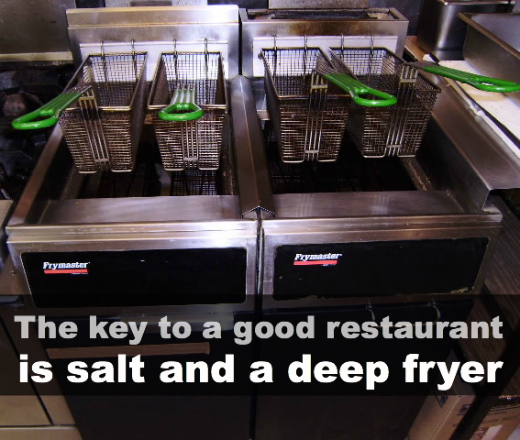A bill passed this morning by the House Higher Education Subcommittee, in a 4-3 vote along party lines, would cut an additional $41 million in state funding from the University of Michigan, and $27.5 million in funding from Wayne State University. According to a report in today’s Detroit Free Press, this is being done to “punish” the universities for their efforts to renegotiate with their respective unions prior to next week, when Michigan’s recently passed “right to work” legislation becomes the law of the land. (Wayne State recently signed an eight-year contract with its faculty, and, earlier this month, the University of Michigan came to terms with its lecturers’ union on a four year deal. An agreement with the U-M nurses’ union, I’m told, is also in the works.) The Republicans, it would seem, don’t like it when others follow their lead and try to game the system. (As you’ll recall, the controversial anti-union legislation in question was forced through the lame duck legislature this past November without so much as a single hearing, in violation of all accepted protocol.)
Here, for those of you who are interested, is the high-level background… At the end of the month, employees working in union environments, within the state of Michigan, will be able to avail themselves of union services without having to pay for said services, either through union dues, or what are called agency fees. This, however, does not apply for those union entities that have preexisting agreements in place prior to March 28. For the terms of those agreements, as long as they’re executed prior to the so-called right-to-work legislation going into effect, the unions in question would be able to continue on as they had in the past, collecting dues and agency fees, and using the resulting funds to ensure workplace safety, fight for better wages, etc. The Republican attempt to cut off their funding, via this new legislation, in other words, would be delayed until such time that a new contract had to be negotiated. So, clearly, there’s a desire on the part of unions to lock in lengthy contracts now, before the law goes into effect. And, as you might imagine, the Republicans who conspired to make Michigan a right-to-work state are not too happy about it.
It’s also worth noting that Michigan Republicans have long had a tempestuous relationship with the state’s universities. On one hand they know that our universities are probably the only things keeping us from sliding into economic irrelevancy, but, on the other, they absolutely hate the fact that universities are, by their very nature, breeding grounds for bright, inquisitive individuals, who often aren’t inclined to accept simplistic rhetoric and vote for candidates pushing anti-science agendas. (Republicans in Lansing like to think that cheap labor is enough to turn the state around, but they know, deep down, in their twisted, shrunken hearts, that they need the high-tech start-up companies and that educated graduates that our research universities are turning out.) And, every so often, things come to a head. As you may recall, things heated up a few years ago, when House Republicans attempted to withhold funding from Michigan universities that continued offering domestic partner benefits, in spite of the fact that many in the legislature made it known that the Lord was opposed to the idea of insuring homosexuals in committed relationships. (God, as we know, prefers his gays to be promiscuous and sickly.) Fortunately, in that instance, the Governor slapped the more rabid members of his party back. It’s not so clear what will happen this time, though, as the Governor hasn’t recently shown a willingness to stand up to the fearful, anti-intellectual, Tea Partying base of his party.
It’s probably also worth noting that this whole thing is playing out in front of a backdrop of already steadily-declining state support for higher education. Last year, the state, which already spent more on prisons than on higher education, passed a budget that saw university funding decrease by an additional 22%, prompting speculation on the part of many that the University of Michigan would eventually make the choice to become a private institution. (The currently proposed Republican budget, it should be noted, would see university funding go back up by 2.2%, but that, of course doesn’t take into account these penalties which are being threatened against schools like Wayne State and U-M. “Without the penalty,” according to AnnArbor.com, U-M is set to receive $278.9 million in state appropriations, a 1.7% increase over this year.”)
Here’s what the Higher Education Subcommittee provision in question states:
“Provides that funds appropriated for fiduciary responsibility in employee contracting be paid to a university only if it does not extend, renew, or enter into a labor contract under certain circumstances between December 10, 2012 and March 28, 2013 without achieving 10% or greater savings and does not enter into a contract between the same dates that contains only terms that constitute a union security agreement that requires any of several specified employee actions as a condition of employment.”
It is, of course, worth mentioning that this language coming out of the subcommittee could well be stripped and/or edited in the House and Senate, as they continue to debate the bill, so this isn’t by any means a done deal. It does, however, illustrate to me just how vindictive and hypocritical our Republicans in Lansing are. The fact that they’re thinking of punishing universities for acting in accordance with the law, and negotiating openly with their unions, while they themselves conspired to ram though divisive right-to-work legislation during the lame duck session, behind police barricades, and without any public debate, I think, speaks volumes. And, one suspects, this isn’t the end of it. If they’re going after our universities for proactively coming to terms with their unions prior to March 28, then you can assume they’ll attempt to do the same thing with our local governments, that are attempting to do the same thing.
update: M-Live has a response from the Governor’s office, as well as quotes from two of the Republicans responsible for this proposal. Here’s a clip.
…How will Gov. Rick Snyder’s administration respond to the proposal?
Snyder spokeswoman Sara Wurfel said in an email “it’s just one part of the legislative process and we’ll watch closely as the issue and appropriations process progresses.”
Wurfel said that Snyder has indicated that “if there was significant economic benefit or savings in long-term contracts” that were negotiated, they could be of value and “make sense.” But if those contract changes offer “very little substance, then it’s fair (to) bring up questions and concerns.”
And here are the thoughts of Republican State Representative Al Pscholka and Republican Senate Majority Leader Randy Richardville:
AL PSCHOLKA: “I think we’ve sent a pretty serious message here,” the chairman of the House appropriations subcommittee said after today’s vote. “And hopefully it’s received. The message is: Protect taxpayers. If you’re going to do contracts, make sure that you come up with real taxpayer savings. We haven’t seen any yet.”
RANDY RICHARDVILLE: “What I favor is reasonable representation to the people that were appointed to these boards,” Richardville said today on the Senate floor. “If it’s a quote-unquote money grab to increase contracts in a way that isn’t normal because a law was passed, then I think that the people that either attend or help pay for that — the taxpayers in general — should have some serious questions about the way they’re spending that money… I wouldn’t see the fact that we are not going to throw more money into people’s hands that aren’t responsibly looking at it as necessarily a punishment. I think it’s being responsible with taxpayer dollars, and they need to make sure that they are responsible.”


 Finding common cause with
Finding common cause with 
 MARK: Perhaps, before we get started talking specifically about your work, you could share a little background about the Southern Foodways Alliance, how it got started, its mission, etc.
MARK: Perhaps, before we get started talking specifically about your work, you could share a little background about the Southern Foodways Alliance, how it got started, its mission, etc. AMY: In my oral history workshop I always share the African proverb, when an old [person] dies, a library burns to the ground. There’s no way to measure what’s been lost, only document what remains. Again, this is precisely why we’re doing this work.
AMY: In my oral history workshop I always share the African proverb, when an old [person] dies, a library burns to the ground. There’s no way to measure what’s been lost, only document what remains. Again, this is precisely why we’re doing this work. MARK: What was your favorite meal?
MARK: What was your favorite meal?










